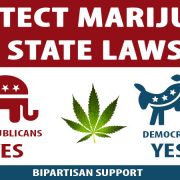Epidiolex: FDA approves another cannabis-derived prescription medicine
/0 Comments/in California Marijuana Licensing, Marijuana Tax Planning & Marijuana Tax Defense/by Tax AttorneyNew Cannabis Testing And Packaging Rules Now In Effect – How Does This Impact The California Market?
/0 Comments/in California Marijuana Licensing, Marijuana Tax Planning & Marijuana Tax Defense/by Tax AttorneyAnother Alleged Member Of “Operation Silk Road” Returning To The U.S. To Face Federal Charges
/0 Comments/in Criminal Tax Enforcement, Crypto-currency / Bitcoin, Marijuana Tax Planning & Marijuana Tax Defense/by Tax AttorneyIRS Establishes New Criminal Investigation Group Using Big Data Analytics to Crack Down on Offshore, Bitcoin and Cannabis Tax Evasion
/0 Comments/in California Marijuana Licensing, Criminal Tax Enforcement, Criminal Tax Litigation – Domestic Tax Issues, Crypto-currency / Bitcoin, FATCA, FBAR, Foreign Accounts - Tax Information Sharing, Foreign Accounts – IRS Operations & Investigation Developments, IRS Criminal Investigation Division Operation & Developments – Domestic Tax Issues, IRS Operations & Procedures, Marijuana Tax Planning & Marijuana Tax Defense, Tax Audits & Appeals, Undisclosed Foreign Bank Accounts & Unreported Foreign Income/by Tax AttorneyCanada Is Smoking Out The United States Federal Government By Legalizing All Cannabis Starting October 17, 2018
/0 Comments/in Marijuana Tax Planning & Marijuana Tax Defense/by Tax AttorneyCanada Is Smoking Out The United States Federal Government By Legalizing All Cannabis Starting October 17, 2018
While the United States federal government refuses to make any use of marijuana legal and maintains banking and taxing roadblocks to the cannabis industry and despite 29 states plus the District Of Columbia making medical marijuana legal and 8 states plus the District Of Columbia making recreational marijuana legal, Canada is making huge strides into the United States market effectively pulling profits out of the United States into Canada.
Canada’s 2001 Legalization Of Medical Cannabis.
It has only been since 2001 that Canada legalized medical cannabis but the Canadian government has embraced this industry. That started the drive by major publicly-traded Canadian companies like Canopy Growth Corp., Aphria, MedReleaf, and Aurora Cannabis who have substantial capital resources to acquire licensed cannabis businesses in the United States thus reaching new suppliers of cannabis and a growing U.S. consumer market.
Canada’s 2018 Legalization Of Recreational Cannabis.
But now the Federal government of Canada has taken this to a whole new level – Justin Trudeau’s Liberal government introduced the legislation last year in a bid to make Canada the second country in the world to legalize cannabis after Uruguay. Ending 90 years of prohibition, last week the Canadian legislature enacted the Cannabis Act which takes into effect October 17, 2018. The Act makes cannabis fully legal in Canada. Canadians will be able grow up to four plants in their own home and carry up to 30 grams of dried cannabis for personal use. Those caught with more than this amount or who supply marijuana to minors will face penalties. The minimum age of consumption will fluctuate between 18 or 19 years depending on the province.
U.S. Cannabis Industry Still Facing Uncertainty.
Despite certain states in the U.S. legalizing cannabis, it is still illegal under U.S. Federal law so U.S. cannabis business must still face the ongoing challenges of running a cannabis business given this disparity with U.S. Federal law. Those challenges being: your local Federal District Attorney shutting down your business and seizing assets; losing all bank privileges; and getting a big tax bill from IRS that you cannot pay.
Risk of Being Shut Down And Assets Seized By Your Local Federal District Attorney
On January 4, 2018 Attorney General Jeff Sessions rescinded what was known as the “Cole Memo”.
The Cole Memo which came out of the Department Of Justice (“DOJ”) under the Obama administration in 2013, directed U.S. Attorneys to use discretion to prioritize certain types of violations in prosecuting cannabis operators, but, strictly speaking, it did not make operations in cannabis legal.
The Cole Memo included eight factors for prosecutors to look at in deciding whether to charge a medical marijuana business with violating the Federal law:
- Does the business allow minors to gain access to marijuana?
- Is revenue from the business funding criminal activities or gangs?
- Is the marijuana being diverted to other states?
- Is the legitimate medical marijuana business being used as a cover or pretext for the traffic of other drugs or other criminal enterprises?
- Are violence or firearms being used in the cultivation and distribution of marijuana?
- Does the business contribute to drugged driving or other adverse public health issues?
- Is marijuana being grown on public lands or in a way that jeopardizes the environment or public safety?
- Is marijuana being used on federal property?
But now that the Cole Memo has be rescinded, federal prosecutors in cannabis legal states will now be free to decide how aggressively they wish to enforce federal marijuana laws. While State law and public acceptance of marijuana usage may temper federal prosecutors’ aggressiveness, this risk of seizure and shutdown is still real. Criminal prosecution is also possible so it is important to have qualified legal counsel lined-up and available to intervene.
Risk Of Losing All Bank Privileges
While states are opening their markets to marijuana, the illegality under Federal law still restricts cannabis businesses access to banking channels. On February 14, 2014, the Financial Crimes Enforcement Network (“FinCEN”) which is a division of the Department Of Treasury issued guidance (FIN-2014-G001) clarifying how financial institutions can provide services to marijuana-related businesses consistent with their Bank Secrecy Act (“BSA”) obligations, and aligned the information provided by financial institutions in BSA reports with federal and state law enforcement priorities. This FinCEN guidance issued by the Department Of Treasury was following the Cole Memo issued by the DOJ. But now that the Cole Memo has been rescinded, the FinCEN guidance is not has persuasive leading many banks to turn away cannabis businesses. For those cannabis businesses that have eluded banks with their true business activity (which such misrepresentation is also a Federal crime), those businesses run the risk of having their bank accounts shut down by the bank when the bank learns of their true business activity so it is important to secure qualified legal counsel to come up with solutions that will allow you to still conduct business and meet financial obligations.
Risk Of Getting A Big Tax Bill From IRS That You Cannot Pay
Generally, businesses can deduct ordinary and necessary business expenses under I.R.C. §162. This includes wages, rent, supplies, etc. However, in 1982 Congress added I.R.C. §280E. Under §280E, taxpayers cannot deduct any amount for a trade or business where the trade or business consists of trafficking in controlled substances…which is prohibited by Federal law. Marijuana, including medical marijuana, is a controlled substance. What this means is that dispensaries and other businesses trafficking in marijuana have to report all of their income and cannot deduct rent, wages, and other expenses, making their marginal tax rate substantially higher than most other businesses. A cannabis business that has not properly reported its income and expenses and not engaged in the planning to minimize income taxes can face a large liability proposed by IRS reflected on a Notice Of Deficiency or tax bill.
Of the three big risks, by far this is the one posing the greatest challenge as the Federal taxation of cannabis businesses is consistent in all states and not dependent on whether local Federal prosecutors are aggressive in enforcing the illegality of cannabis or the banks unwilling to do business with the cannabis industry. This unexpected liability can put you out of business so it is important to secure qualified tax counsel to be proactive with tax planning to minimize taxes and to defend you in any tax examinations, appeals or litigation with the IRS.
What Should You Do?
Considering this risks of cannabis you need to protect yourself and your investment. Level the playing field and gain the upper hand by engaging the tax attorneys at the Law Offices Of Jeffrey B. Kahn, P.C. located in Orange County (Irvine), Los Angeles County (Long Beach) and other California locations. We can come up with solutions and strategies to these risks and protect you and your business to maximize your net profits.
Manhattan U.S. Attorney Announces Extradition Of Senior Adviser To The Operator Of The “Silk Road” Website
/0 Comments/in Criminal Tax Enforcement, Crypto-currency / Bitcoin, IRS Criminal Investigation Division Operation & Developments – Domestic Tax Issues, Marijuana Tax Planning & Marijuana Tax Defense/by Tax AttorneyIf You Can’t Beat Them, Then Join Them! Senators Introduce Bipartisan Bill To Protect State Laws On Marijuana
/0 Comments/in California Marijuana Licensing, Marijuana Tax Planning & Marijuana Tax Defense/by Tax AttorneyWhat To Look For In Hiring A Cannabis Tax Lawyer
/0 Comments/in Marijuana Tax Planning & Marijuana Tax Defense/by Tax AttorneyCannabis Entrepreneurs Accused Of Tax Crimes
/0 Comments/in Criminal Tax Enforcement, Criminal Tax Litigation – Domestic Tax Issues, IRS Criminal Investigation Division Operation & Developments – Domestic Tax Issues, Marijuana Tax Planning & Marijuana Tax Defense/by Tax AttorneyKeep In Touch
MEET US IN PERSON
Services
- Abatement of Tax Penalties
- Audits And Tax Court
- Business Transactions
- Cannabis / Marijuana Tax Services
- Criminal Tax Investigations
- Crypto-currency / Bitcoin – Tax Representation Services
- Currently Not Collectible
- Delinquent Tax Returns
- Employment And Payroll Taxes
- Entity Formations
- Estate Planning
- Estate Planning For Non US Citizens
- Estate Tax Planning
- FATCA | Foreign Account Reporting Compliance
- FBAR | Foreign Bank Account Reporting
- Full Pay Service
- Income Tax Planning
- Innocent Spouse Claims
- IRS & State Tax Controversies
- IRS Offshore Tax Investigations
- IRS Offshore Tax Investigations
- IRS State Tax Controversies
- Offers In Compromise
- Payment Agreements
- Representation Of Tax Preparers And Other Tax Professionals
- Revenue Officer Assistance
- Tax & Estate Plannng
- Tax Liens And Levies
- Wage Garnishment










 Follow
Follow Follow
Follow